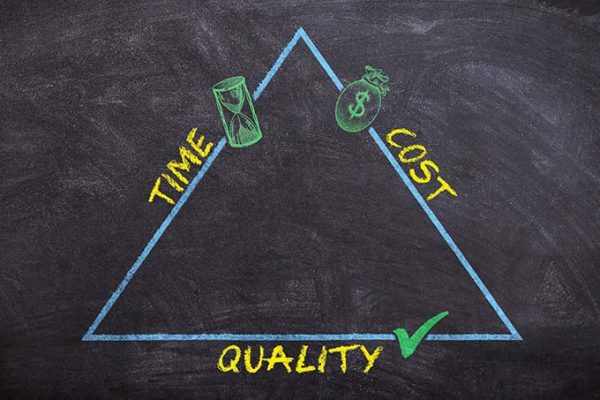“Real integrity is doing the right thing, knowing that nobody’s going to know whether you did it or not.”
Oprah Winfrey
Integrity is defined as “the quality of being honest and having strong moral principles”. In other words you don’t fabricate, don’t lie – especially to yourself – don’t count sales that are not finalised, don’t stretch the truth; it will all, eventually, come back to bite you.
I learned about the importance of integrity very early in life. I stole a large marble from Woolworths when I was 6 years old (I was so bad at marbles I kept losing them to better players). I got caught. The store owner called in my mother to collect me. I won’t go into detail about what her reaction was, but suffice to say I learnt my lesson! I still hate anything less than the truth, both for myself and for other people.
Some would say that integrity is so important that it is the number one quality someone should have in business. There are several reasons for this point of view:
- If you have integrity the people you have a relationship with will come to trust you – staff, suppliers, customers, shareholders and others
- People will give you more responsibility, as they feel you will do the right thing
- People will tend to have more respect for you
- People will consider you to be authentic.
Integrity should be a basic part of doing business; it should be a given. No one likes a company or a person that lies, cheats, or plays tricks with its customers, nor do people want to work for a dishonest manager.
But reality is not as easy as this. There is an innate human ability to rationalise any sort of behaviour: ‘it’s not really cheating’; ‘it’s no big deal’; ‘everyone else does it’. How honest should I be with customer feedback? How much billable time is devoted to a client? Do I hide certain aspects of my background in a CV?
In addition, everyone defines integrity in a different way. False information to one person may be acceptable to another. Different cultures can have quite different views on what might constitute a bribe and what is just ‘business as usual’. Be aware and be ever critical of your reasons for doing something.
So why is integrity so important?
- Living and breathing integrity means we do not question ourselves
- When we operate with integrity we gain the trust of other people
- Integrity is a hallmark of ethical leadership
- We become role models.
As the Harvard Business Review notes, integrity:
- Makes you a better person
- Gives you a good reputation
- Is a dying virtue, thus appreciated more
- Shows who you really are
- Can help you along in life
- Is the right way to live.
It is now up to you to display all the characteristics of a person who lives with integrity.
My benchmark for integrity was set at age 6. From that point on I never did anything that I wouldn’t want my mother to find out about!
How about you? Can you say the same thing?
Regards,

Robin Martin
P.S. This article is part of my Secrets of Success series, aimed at helping business owners and entrepreneurs with some of the key components of business success. The insights I wish I’d had at the start of my business career. I hope that by passing on these little gems of knowledge I can give you some support and help you along the pathway to growth and prosperity.







